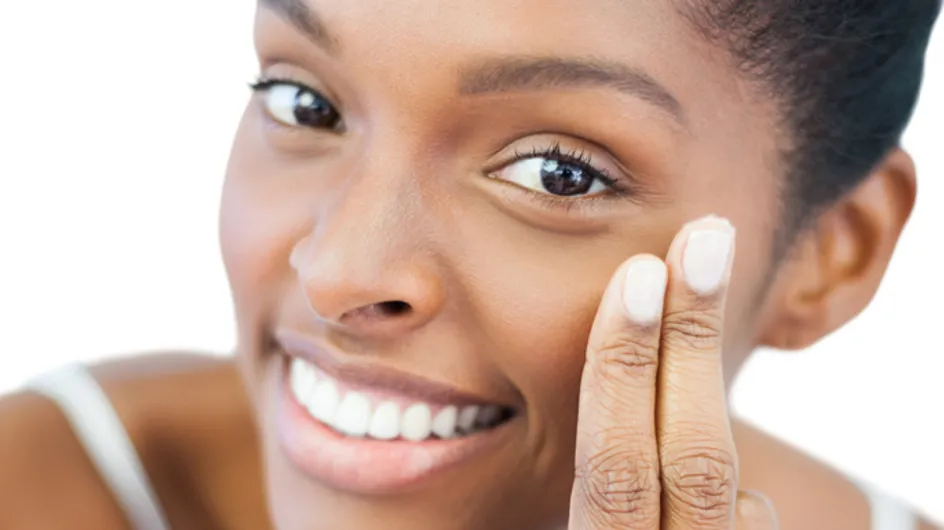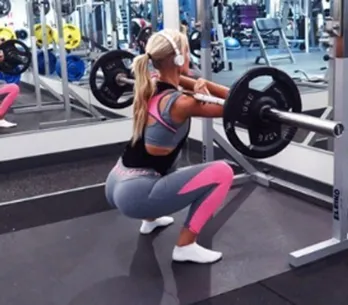It’s a little known fact that the muscles that control your eyes are the most active muscles in your entire body and a whopping 80% of our life memories are constructed from images. So it figures we need to start looking after them more. We talked to Daska Barnett, Optometrist at Specs Kensington, to give you the health tips that every contact lens wearer should know. Cos what more of an excuse do you need to start protecting those peepers?
1. Look for oxygen permeability with your lenses
Daska says: “What you’re looking for is healthy eyes that breathe and are not compromised by lens wear. Basic hydro-gel lenses have been around for a very long time but the new generation of siilcone hydrogel is 98% oxygen permeable. Studies have shown that the eyes of someone wearing this type of lens compared to an eye that doesn’t wear a lens looks the same with silicon hydrogel.”
So always look for lenses with this magic ingredient. Improved water content and improved oxygen permeability means a lot of wearers can keep their lenses in for longer without any problems whatsoever.
2. Be your own boss:
Forget all that you’ve been told about how long to wear your lenses. Nowadays Daska says that the power lies with you.
“You can simply wear your lenses for as long as your eyes feel healthy - it’s very individual. Traditionally, opticians gave a finite period of how long you should wear your lenses – but really you should absolutely instinctively listen to what your body is telling you. You know when your eyes are beginning to dehydrate and you should take them out.”
So how do you know when to take them out?
“Your eyes should be comfortable, they should be white and you should be able to see well, if any of these are starting to go down then you should listen to your body and remove your lenses.“
3. Opt for lenses with UV protection:
One thing that we all need to get our heads around quickly is the effects of UV rays on our eyes which is why super-brand Johnson and Johnson recently teamed up with Acuvue to raise awareness for eye health – this is important stuff.
Daska says that UV rays cause a whole lot of problems from short term ‘snow blindness’ to long-term problems that can do serious damage to your eyesight.
“If you have the opportunity to wear a lens that is ultraviolet blocking then why wouldn’t you? We’ve all got very good at understanding the influence of the sun on our skin but we tend to forget about the effects on eyes,” she says.
A common misconception is that sunlight is most dangerous at noon but really the UV rays are the most harmful to your eyes early morning and early evening due to the angle of the sun so having that all-day protection from your lens is crucial.
However, not many brands offer UV protection within their lenses, in fact Acuvue is the only major brand which blocks more than 98% of UVB and 85% of UVA rays so it’s worth asking your optician about their ranges.
As Daska says: “There is absolutely no reason not to protect yourself from the effects of ultraviolet rays on the eyes.”
4. Learn the 20-20-20 rule:
Most of us can’t help that we have to look at screens all day long, but what we take control of is making sure we get regular breaks.
Daska says: “When we’re looking at screens (which a lot of us are) then your blink rate tends to decrease so the dryness you feel in your eyes increases."
A good way to combat this (other than taking out your lenses or using drops) is to follow the simple 20-20-20 rule.
This is where you take a break from looking at your screen every 20 minutes for 20 seconds, to look at something at least 20 feet away. Easy.
5. There's a right way and a wrong way:
If your contact lenses feel uncomfortable when you put them in it’s usually because they’re the wrong way around.
An easy way to remember which way it should be is that if it’s a ‘U’ shape it’s good to go, if it looks like a V then pop it back in it’s solution and flip it the other way around.
6. Regular check-ups:
Yes we know booking those check-ups is a total pain but the reality is that you’re doing much more harm to your eyes by not going. Daska says: “The crucial thing is that you make sure you see your practitioner regularly even if everything feels fine. What you’re wanting to do is make sure there are no changes in that cornea or any vessels around the eye.”
So as well as your general eye health, the other thing you will be missing out on by skipping your appointments is new developments in contact lenses.
“In my view, in 5 years' time there will be something new and better than the current lenses. Continual improvement is what it’s also about, so going to your practitioner means that you will always be up to date with the latest technology out there,” she advises.
7. Always change your contact lens case regularly
For all of you who wear monthly or weekly contact lenses that case can be your best friend or your worst enemy.
Daska says: “When you refresh your lenses you refresh your case. It’s the cases that tend to harbour the bugs.”
It’s as simple as that really. When you get your lenses they give you plenty of cases for a reason so don’t be tempted to stockpile, change your case regularly.
8. Use non-preserved unit drops
Dryness is the most common problem for contact lens wearers but Daska says there are ways around it.
“Non-preserved, unit dosed are the ideal drops because you don’t put preserving agents into the drops themselves.”
But just remember, drops aren't the solution to the problem. As Daska warns.
“You should not continue to wear lenses by bunging drops in all the time, but if you need an extra hour’s comfort if you’re at your desk then these are fine.”
9. Allergies and your lenses:
One thing that you might not realise is that contact lenses can have a really bad reaction when your allergies are high.
So if you suffer from allergies then you should know that taking out your contact lenses can make things better.
This is because tiny pollen particles can stick to the contact lens – if you wear your glasses, not only will you be making sure this doesn’t happen but you will also be giving your eyes a protective barrier.
10. Make-up matters:
Don’t think make-up is important? Well research shows that old make-up can increase the chances of eye infections so make sure that you change up your products at least every 3 months.
Plus, putting in your contacts after you’ve done your make-up just increases the chances of infections even more, so get those lenses in way before the slap goes on.
You Might Also Like:
No, You're Not Going Crazy - Thigh Makeup Is Now A Thing
You Can Now Buy Glittery Penis-Shaped Soap To Clean Your Makeup Brushes With













